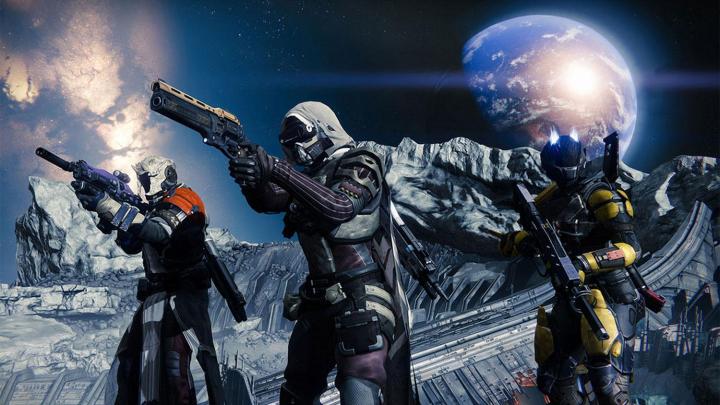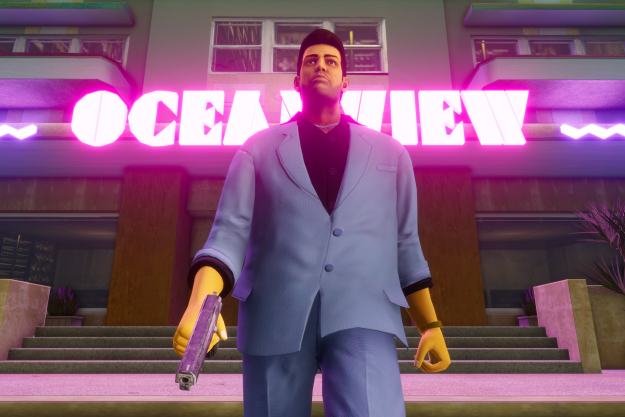
We laughed. We cried. We screamed ourselves hoarse with excitement. And we played. A lot. So. Many. Games.
Through it all, trends emerged. New patterns and evolutions of old ones, all of which lead the way into the future. So as twilight descends on 2014, let’s take a moment to consider all that we’ve seen, all that we’ve done, and all that we’ve learned. What’s ahead? That’s for us to decide. But these are some of the key things that will help shape the new gaming experience in 2015.
Tolerance and an end to the hate
We’re going to talk about GamerGate now.
That term sprung up in response to a string of opinion pieces discussing the “death” of the less savory aspects of gamer culture. It was also closely connected to the public airing of a female game developer’s dirty laundry. From these events, GamerGate quickly became synonymous with a vague, undefined call for “ethics in game journalism.”
Harassment, doxing, misinformation … these are the tools of the Internet’s cowardly anonymous.
The long progression of events that led one thing to the other is immaterial at this point. What is important is the way GamerGate exposed what has long been a dark underbelly of the games-loving community.
Certain people lean on the comfort of anonymity to attack those they disagree with, and oftentimes that comes out in socially unacceptable, even downright reprehensible ways. Harassment, doxing, misinformation … these are the tools of the Internet’s cowardly anonymous. Whatever the term “GamerGate” means to you, personally, it’s been weaponized by this nameless minority – make no mistake, it is a minority – that will to go to unseemly lengths in expressing their discontent.
GamerGate looms large as we step into 2015. New examples of harassment surface every day, but the people demanding change are now savvier when it comes to spotting and calling out the bad seeds. The lessons learned by fans of video games around the world – many of whom are absolutely reasonable and respectful individuals – won’t soon be forgotten. And that’s a good thing. For all the damage wrought in the name of GamerGate, we will pull positives out of the experience.
As the New Year dawns, we greet it with an evolved awareness of Internet culture. The trolls still lurk in the shadows, just like they always do, but we’re better equipped now to defuse the misery and chaos they seek to create.
Men and women, working together! No hysteria!
Here’s some news that isn’t really news: Roughly half the world’s population is female. Wander through the halls of certain game development studios or browse the booths of E3, and you’d be forgiven for doubting that statistic. But it’s true.
Workplace diversity is hardly a new conversation, even in the most byzantine corners of the gaming industry. It’s not even just about gender; race, creed, and sexual orientation all factor in here as well. But, for a variety of reasons too involved to explore here in-depth, calls for increased diversity reached an overdue-yet-entirely welcome fever pitch in 2014.

Some of it stems from GamerGate, since many of its more vocal anomymous set their crosshairs on high-profile women in the industry. Some of it stems from publisher gaffes, such as Ubisoft’s lame-and-quickly-recanted claim that the “reality of production” – specifically, the doubled workload of creating animations for male and female forms – is what led to the lack of playable female characters in Assassin’s Creed Unity.
These incidents and others helped to raise awareness around some of the obvious imbalances in the industry. And the fact that diversity is already a global conversation has prompted a greater push for change.
It won’t happen quickly. And it’s not even something that’s going to “end” in 2015. Expect improvement, though, in an evolving industry. Look for a wider variety of faces represented in all corners of the medium, from the people making decisions and driving creative directions to the bits and bytes that render virtual humans on your TV screen.
The death of the indie
No, indies aren’t going anywhere. The term is changing. It used to refer to small games made by small teams working outside the realm of Big Game Publishing. Or, to put it another way, it referred to games that only a niche audience would really get behind.
That was before the explosive growth in 2013 and 2014, spurred by a string of borderline-mainstream (if not fully mainstream) successes like Gone Home, Spelunky, and even the choice-driven narratives from Telltale Games. What the heck is Telltale? The studio self-publishes just like other indies, but would you really classify it as such?
Expect to see a broader definition of what qualifies as “mainstream” in gaming.
There’s the rub. The indie isn’t dying because it’s getting replaced, or losing fans. In truth, it’s the opposite. Indie may not be the new mainstream, but it’s as inextricable from mainstream gaming at this point as first-person shooters and open-world adventures.
That’s thanks in large part to the fact that the people who create games have more avenues open now to exposing an audience to their work than they ever had before. Kickstarter. Sony’s Indie Pub Fund and Microsoft’s ID@Xbox. PlayStation Plus Instant Game Collection freebies. Steam Greenlight and its ilk. Even just savvy social media use. All of these tools carry the promise of propelling lesser-known names into the spotlight.
Big Game Publishing is responding too. Look at Activision’s revival of the Sierra brand, which is really just a new indie division that’s been carefully cultivated to trade on our fond memories of gaming’s yesteryear. Look at Ubisoft’s efforts to market the likes of small titles Valiant Hearts and Child of Light alongside behemoths like Assassin’s Creed and Far Cry. Hell, look at how the bananas growth of mobile gaming has led to smartphone/tablet releases of favorites like FTL and Papers, Please.

Change is most definitely afoot. Expect to see a broader definition of what qualifies as “mainstream” in gaming. You’ll still have your first-person shooters and open-world mayhem, but they’ll be competing for shelf space with the children of greats like Gone Home. And you know what? That means more games across the board. In that scenario, everyone wins.
The rich afterlife of post-release
The financial realities of blockbuster game development in this day and age are scary. The eight- and even nine-figure investments need to bring back comparable returns; that’s Capitalism 101. Sure, the people signing checks know that Call of Duty and Madden can be trusted to sell big, but what about fresh unknowns with promise? And even if last year’s top shooter drew billion-dollar sales, there’s still the risk that its annualized follow-up won’t.
Increasingly, publishers need to consider the “long tail” on their pricier investments. That’s where downloadable content, eSports partnerships, subscription fees, and microtransactions come from. These all play out in different ways, but they each promise to bring publishers revenue on a game long after its initial release.
The ideas themselves aren’t new, but the people that implement them are still tinkering, and forever getting smarter about it.
The ideas themselves aren’t new, but the people that implement them are still tinkering, and forever getting smarter about it. Whether or not you’re a fan, Activision tried something very different with Destiny, which embraces aspects of massively-multiplayer gaming. There are no subscription fees, but the game is built to provide compelling reasons for fans to spend cash on post-release content. The success or failure of this approach remains to be seen, but the publisher’s embrace of it speaks to the trend.
You don’t need a crystal ball to know that 2015’s top games will serve as anchors for all manner of post-release content. That’s old news. But look for new ways to engage with your games after release. Evolved sensibilities when it comes to building microtransactions into games. Ubisoft drew fair criticisms for the way Assassin’s Creed Unity handled such things, but very valuable lessons grew out of that.
There’s nothing inherently wrong or bad about building a game with a long tail in mind. It’s a great thing for fans: If you really love a particular game, don’t you want an opportunity to play more of it? The greater success that comes with higher-quality post-release offerings could even help the industry get away from the annualized sequel culture that leads to rushed development timelines and buggy day-one releases. And again, in that scenario? Everyone wins.


